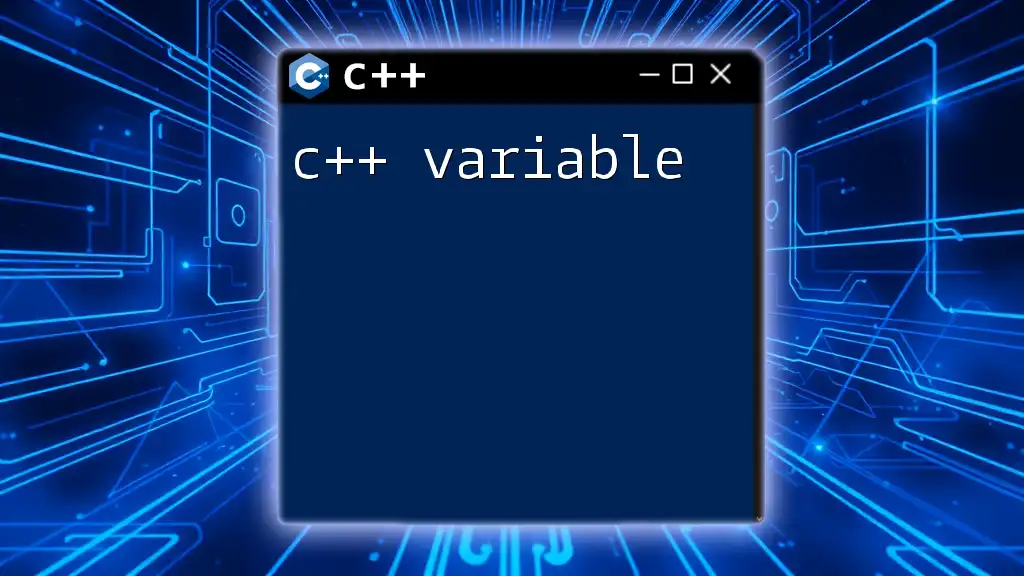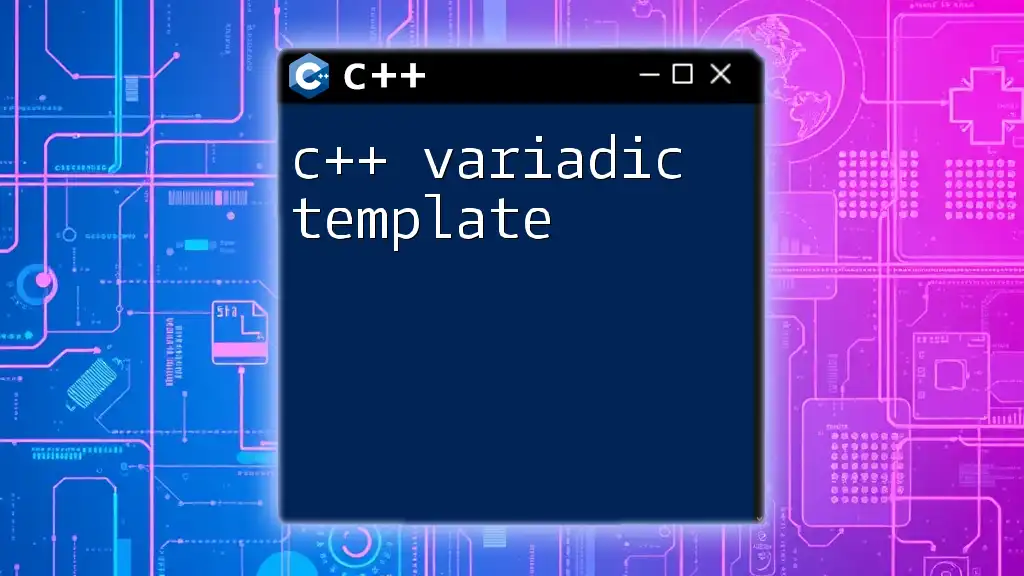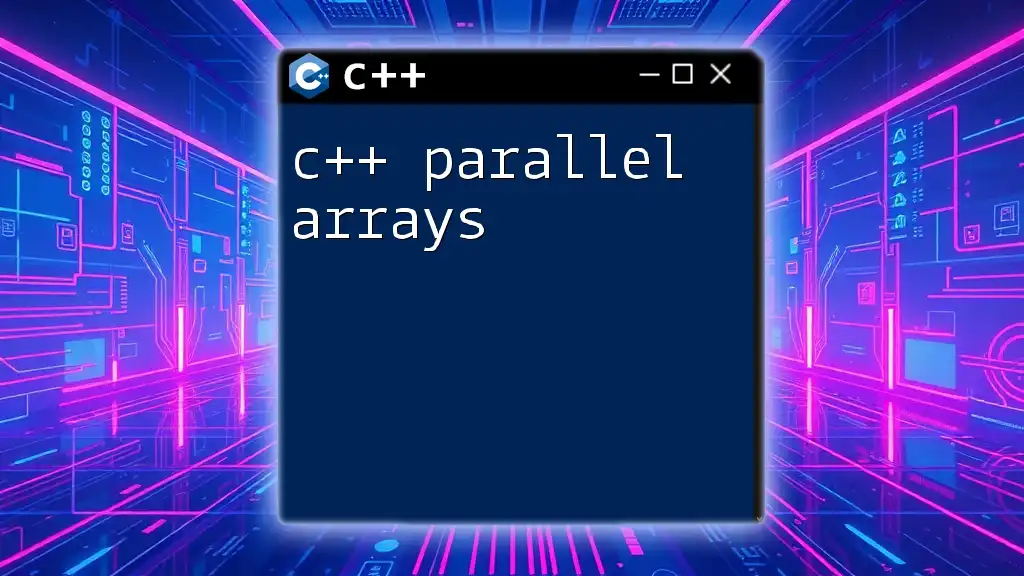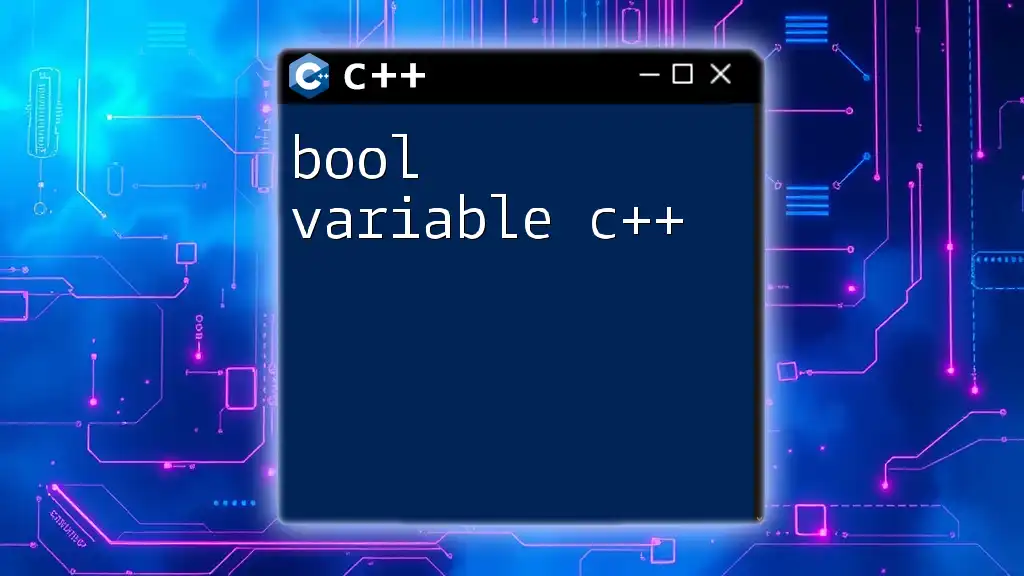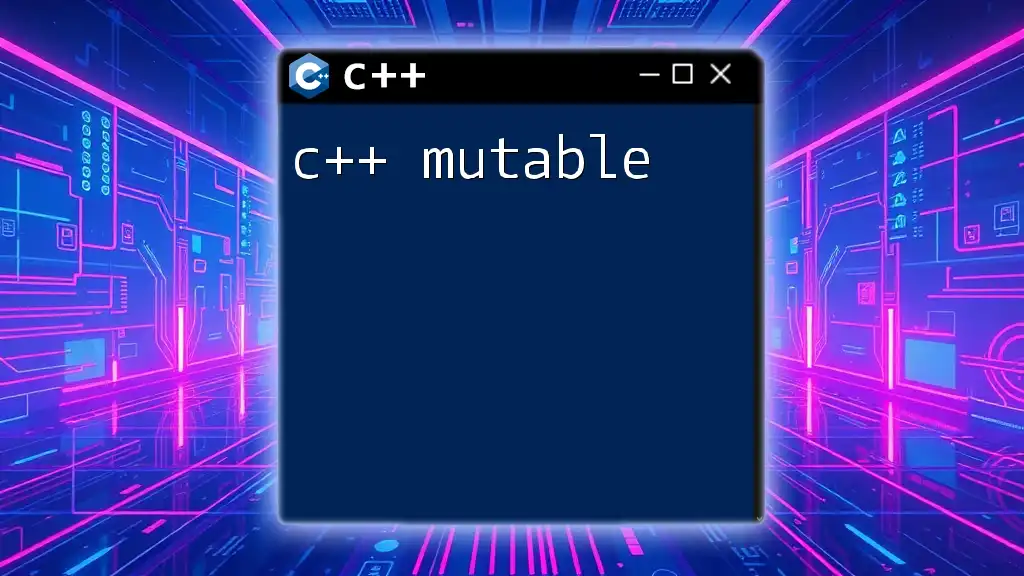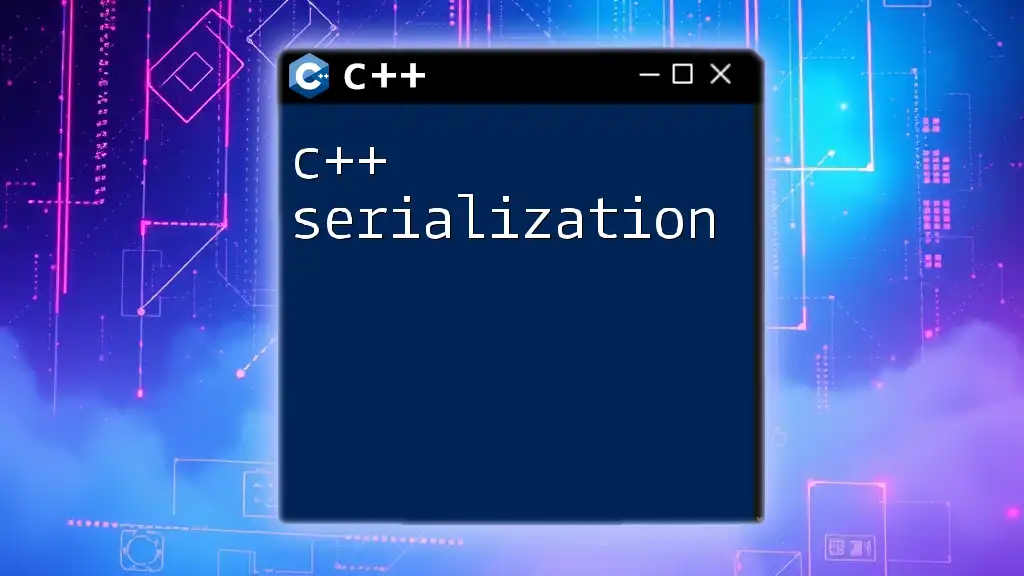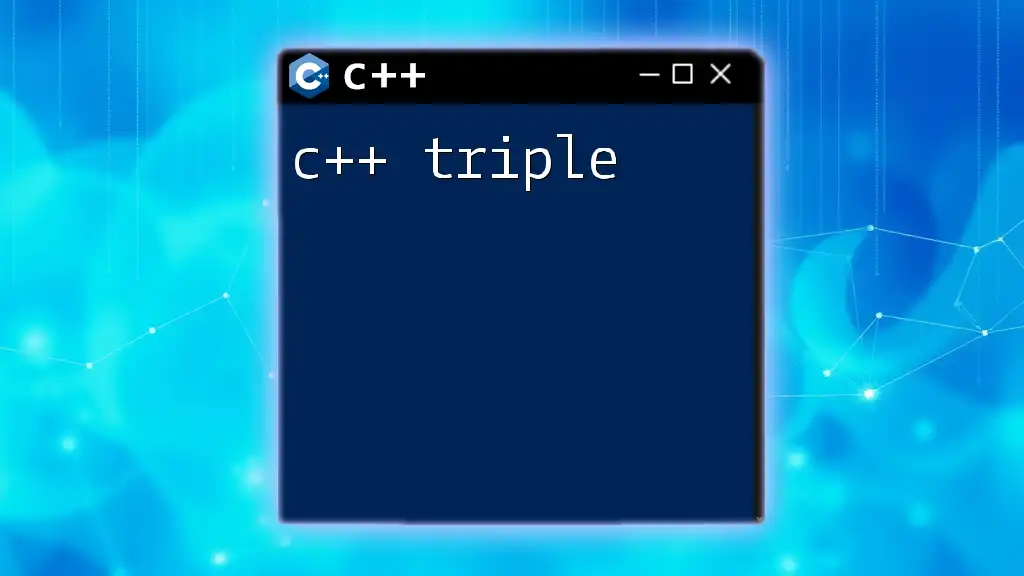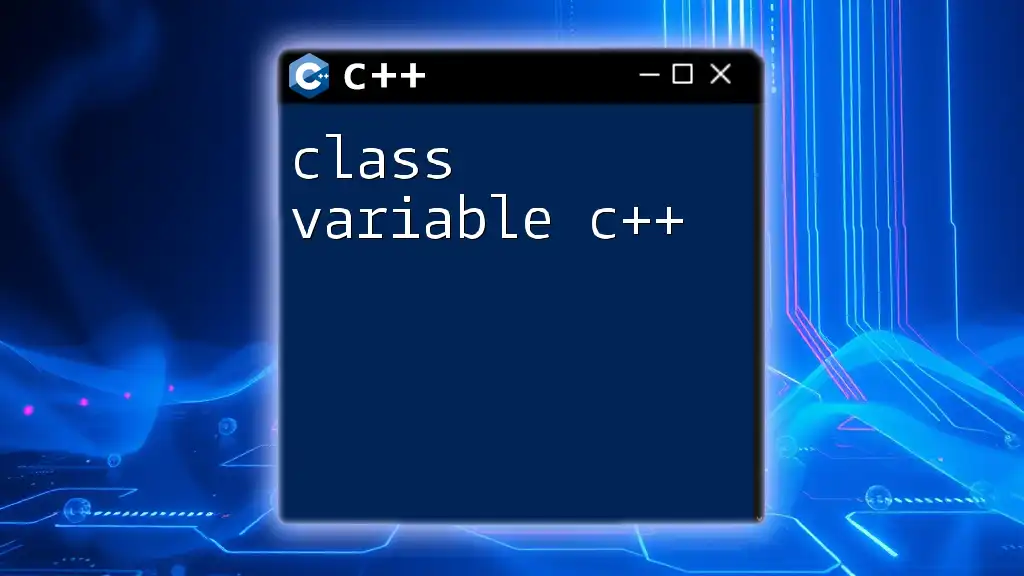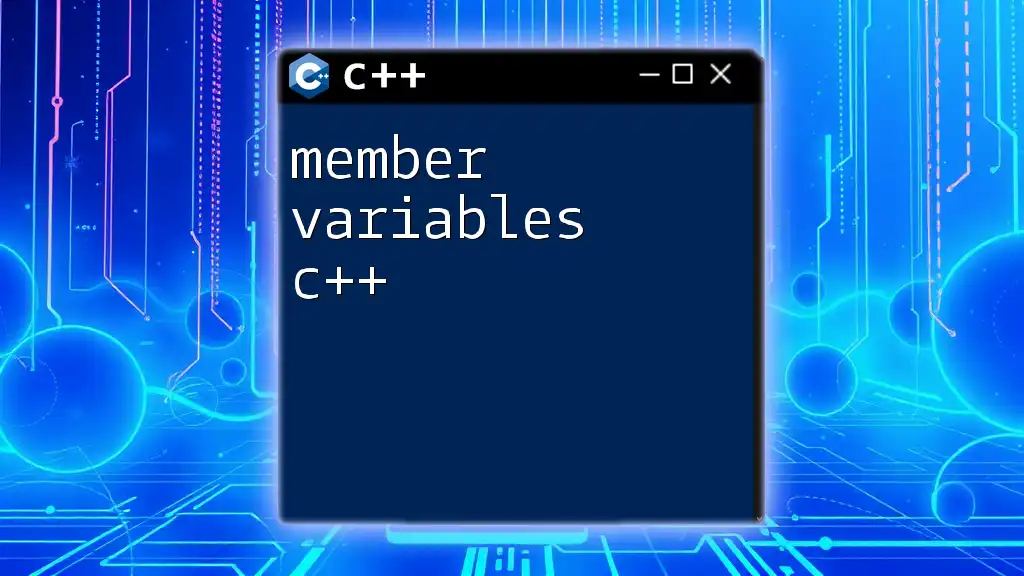In C++, a variable is a named storage location in memory that holds a value and can be modified during program execution.
int age = 25; // Declares a variable 'age' of type int and initializes it to 25
Understanding C++ Variables
What is a Variable?
A variable in programming serves as a storage location identified by a unique name, which holds data that can change during the execution of a program. Think of a variable as a container that stores information, just like a box stores items. In the world of C++, variables are essential for defining and manipulating data, allowing programmers to write dynamic and flexible code.
Why Use Variables?
Variables are fundamental to programming because they help in managing memory and facilitate easy code readability. By using variables, you can:
- Store Data: Variables hold values that can be utilized and modified throughout a program.
- Make Code Readable: Descriptive variable names provide context, making the code easier to understand for others (or yourself in the future).
- Enhance Maintainability: By using variables, updating values in a single location can reflect changes throughout your program without the hassle of finding and replacing hardcoded values.
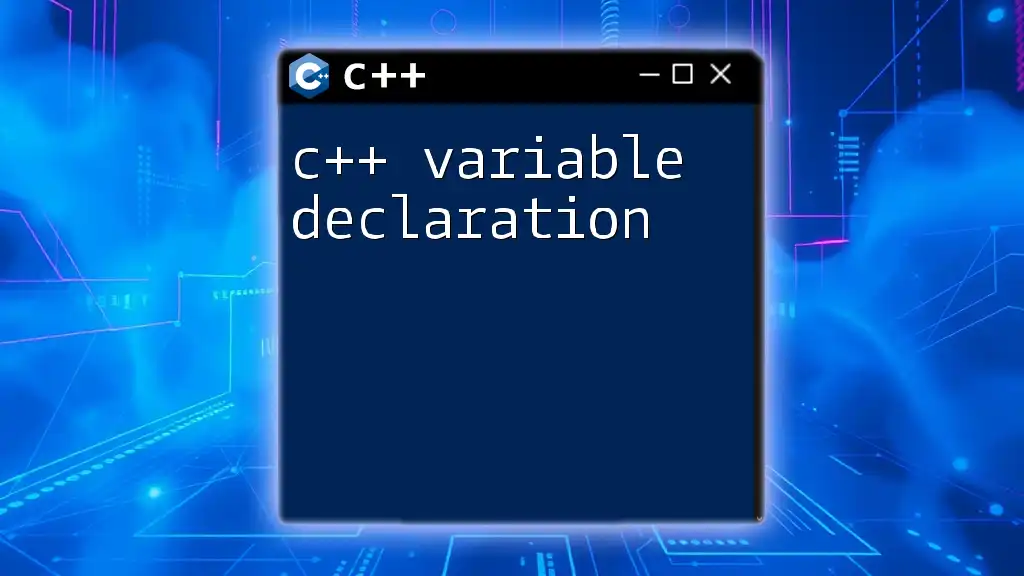
Types of Variables in C++
Primitive Data Types
C++ offers several primitive data types, each designed for specific purposes. Understanding these types is critical for effective programming:
- int: This type is used for storing integer values, which are whole numbers without a decimal point.
int age = 30; - float: Suitable for holding decimal numbers or floating points. The `float` type occupies less memory than `double` but with limited precision.
float height = 5.9; - char: This type stores a single character and is defined using single quotes.
char initial = 'A'; - double: Used for storing double-precision floating-point numbers, which require more memory but offer greater precision.
double balance = 123456.78;
User-defined Data Types
Beyond primitive types, C++ allows you to create user-defined data types for more complex data management:
-
Structs: A `struct` groups related variables of different types into one unit, useful for representing complex objects.
struct Person { std::string name; int age; }; -
Classes: Classes extend the functionality of `structs` by incorporating methods, encapsulation, and inheritance.
class Car { public: std::string brand; void honk() { std::cout << "Beep beep!"; } }; -
Enums: Enumerations define a collection of named integer constants, enhancing code readability by giving meaningful names to integer values.
enum Color { RED, GREEN, BLUE };
Reference Variables
A reference variable acts as an alias for another variable, allowing you to refer to that variable without creating a copy of its value. Reference variables use the `&` symbol in their declaration.
int age = 30;
int& ref = age;
Here, `ref` is a reference to `age`; changes to `ref` will affect `age`.
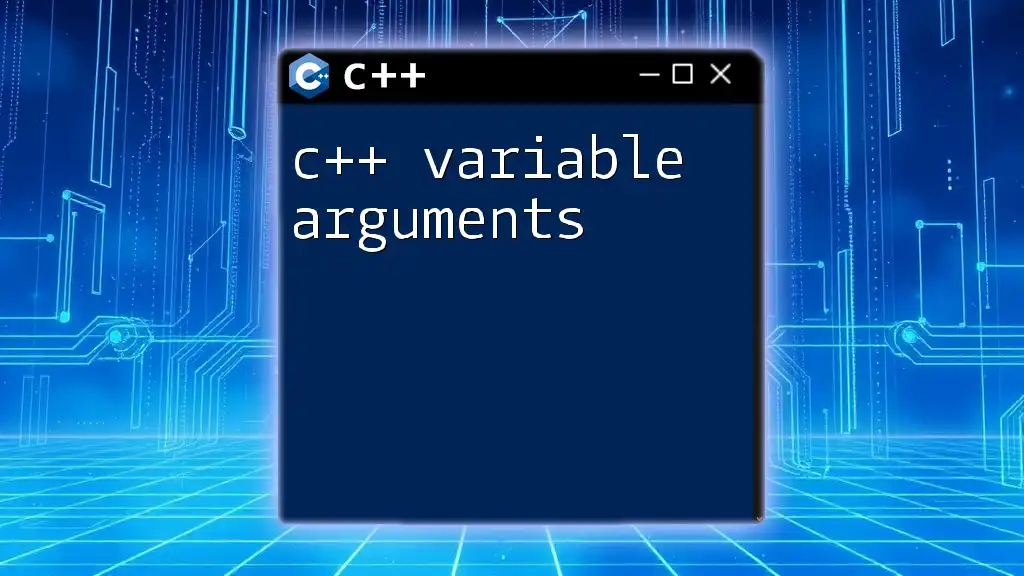
Declaring and Initializing Variables
Syntax of Variable Declaration
In C++, declaring a variable requires specifying its type followed by its name. The general syntax looks like this:
data_type variable_name;
An example of this syntax in action:
float temperature;
Different syntax issues arise if you misspell types, use improper names, or neglect the semicolon at the end.
Initializing Variables
Initialization is the process of assigning an initial value to a variable. Proper initialization is vital to avoid unpredictable behavior.
Different methods of initialization include:
- Direct initialization: Assigning a value directly at the time of declaration.
int speed = 60; - Copy initialization: Using another variable to initialize new ones.
int distance = speed; - List initialization: A modern approach introduced in C++11 that allows initializing with braces.
int score{100};
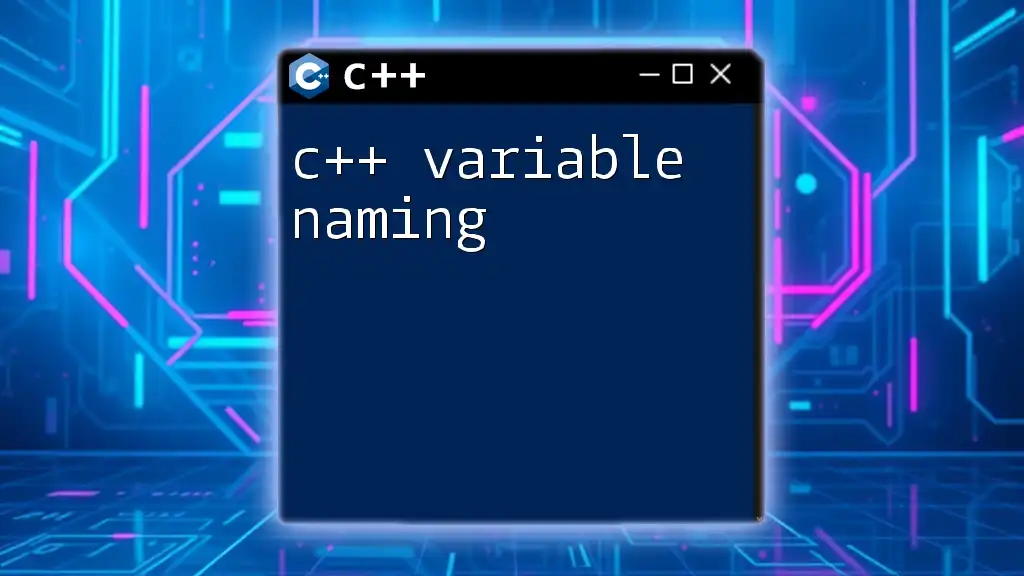
Scope and Lifetime of Variables
Variable Scope
Scope refers to the region of the program where a variable is defined and accessible. Understanding scope is crucial for managing variable visibility effectively.
-
Local Variables: Declared within a function or block, local variables are only accessible within their respective scopes.
void func() { int localVar = 20; // Only accessible within func() } -
Global Variables: Declared outside any function, global variables are accessible from any part of the program, which can lead to unintended side effects if not managed carefully.
int globalVar = 50; // Accessible everywhere in the code.
Lifetime of Variables
The lifetime of a variable describes how long its value remains in memory. Understanding lifetime is essential for efficient memory use.
-
Automatic Variables: By default, local variables are automatic and exist only for the duration of the block in which they are defined.
-
Static Variables: These variables retain their value even after the block has finished executing, maintaining their state until the program ends.
void func() { static int count = 0; // Retains its value across function calls count++; }
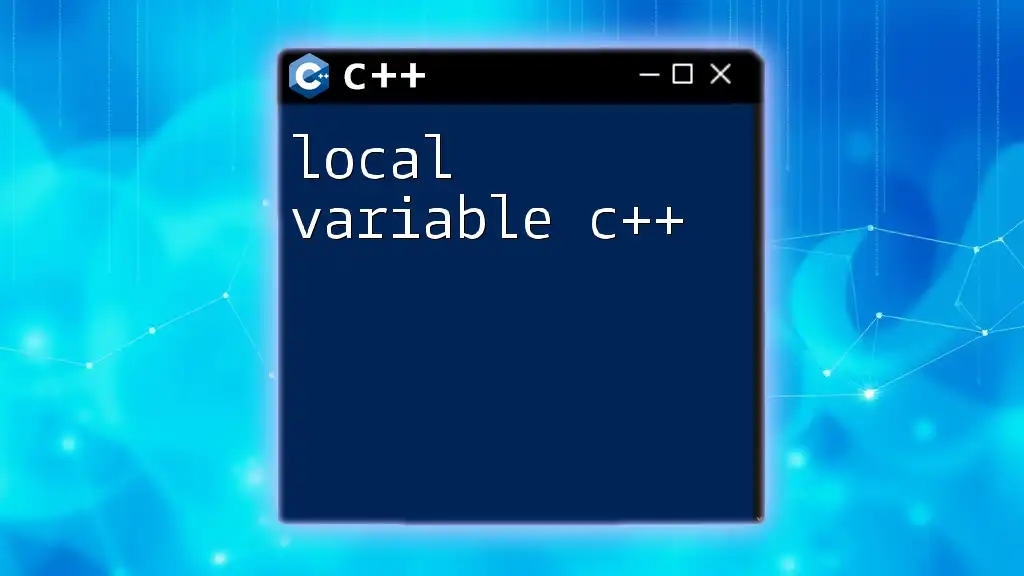
Best Practices for Using Variables
Naming Conventions
Naming variables meaningfully enhances readability and maintainability. Using consistent names can significantly reduce confusion:
- Camel Case: e.g., `myVariableName`.
- Snake Case: e.g., `my_variable_name`.
Managing Variable Memory
Proper memory management is crucial in C++ to prevent memory leaks and optimize performance. Understand dynamic memory allocation using pointers:
int* ptr = new int; // Dynamically allocate memory
*ptr = 25; // Assign value
delete ptr; // Free memory when done
Always remember to free dynamically allocated memory using `delete` to prevent leaks.
Avoiding Common Mistakes
Common issues with variables often stem from uninitialized variables that could lead to undefined behavior. Always ensure variables are initialized before usage and use debugging tools to catch mistakes early.
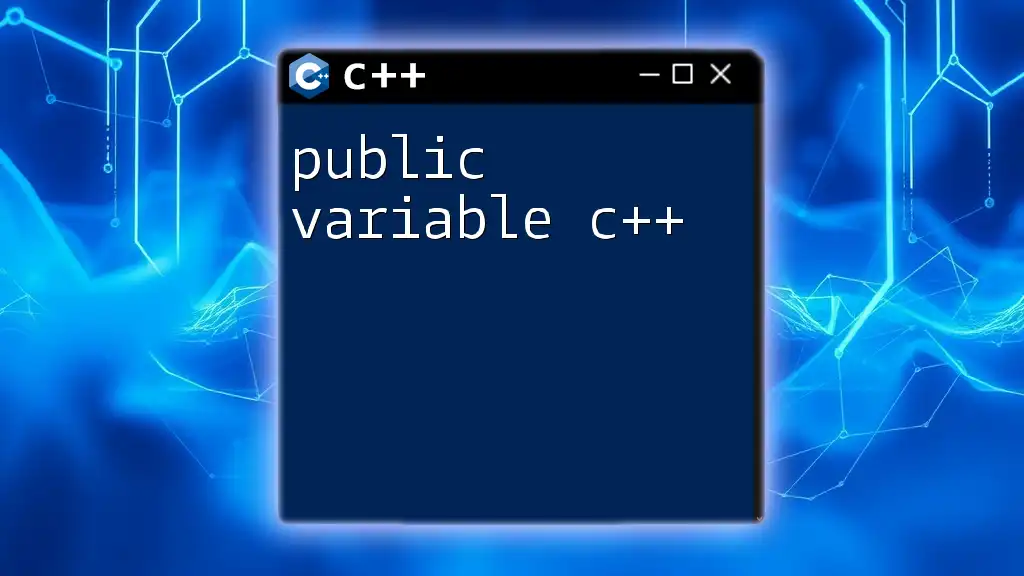
Real-World Applications
Examples in Real Code
C++ variables are applied in numerous programming situations. Consider a basic example illustrating the use of variables in calculating the area of a rectangle:
int length = 5;
int width = 3;
int area = length * width;
This snippet dynamically calculates and stores the area based on user-defined variables.
C++ Variables in Libraries and Frameworks
C++ variables also play a crucial role in libraries like the Standard Template Library (STL), where they are used in algorithms and data structures. Understanding variables is essential when working with frameworks that implement object-oriented programming, as they underpin class properties and methods.

Conclusion
In summary, C++ variables are a foundational concept that influences every aspect of programming in C++. Understanding their types, scope, and lifetime is essential for writing efficient, readable, and maintainable code. By becoming familiar with variables and using them judiciously, you lay the groundwork for becoming an effective C++ programmer.
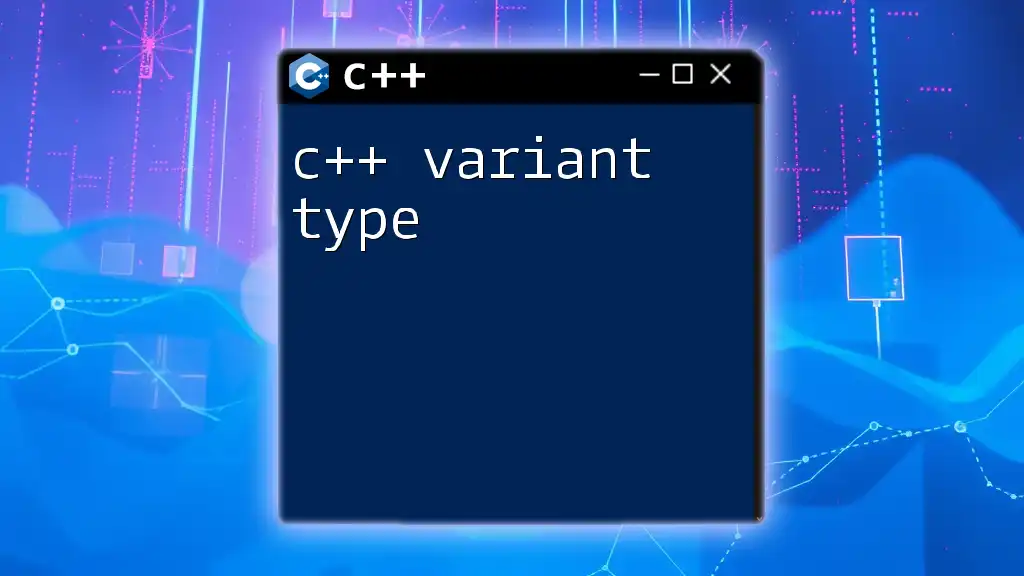
Call to Action
Share your experiences and any challenges you've faced with C++ variables. Feel free to ask questions or provide feedback on topics you'd like to explore further!

